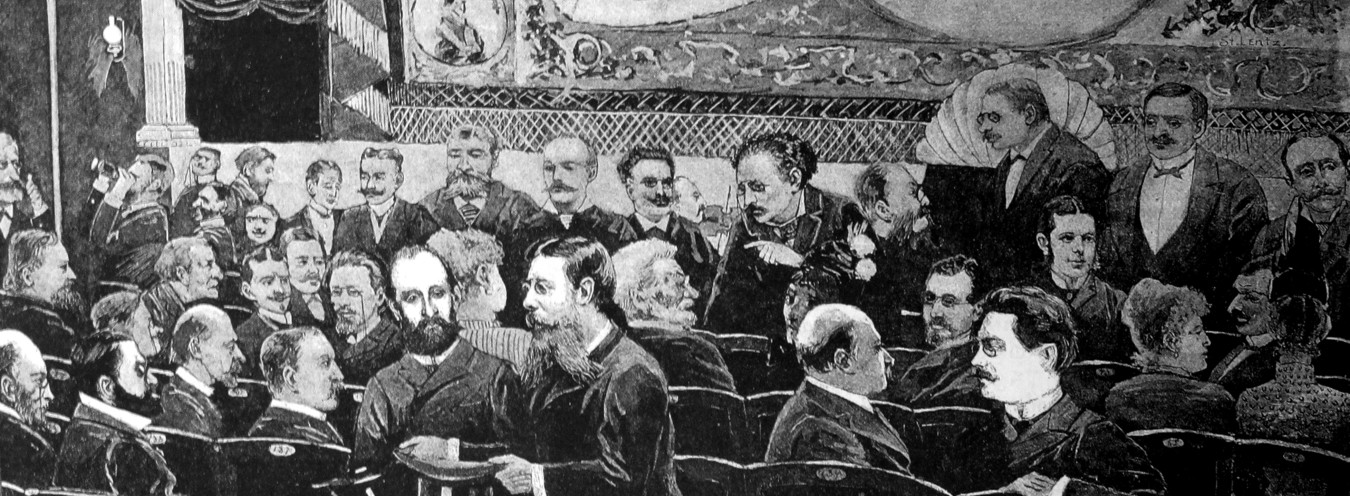
Claque
When Izabela’s beautiful face expressed greatest admiration, then Wokulski rubbed the top of his head with one hand. And then, as if in response to an order, violent applause and noisy shouts were heard from the balcony and gallery […], ‘Upon my soul,’ [Rzecki] thought, ‘can Wokulski be directing a claque?’ (256)
As illustrated by the above quote, a claque was a group of people paid to applaud a performer or performance. The phenomenon officially started in Paris in 1820 as a very lucrative procedure of cheering in exchange for money; both sides were happy, since the claque usually guaranteed box office success. In practise, it came down to claqueurs clapping their hands and shouting “encore” at a sign given by the paying party, which greatly contributed to positive reviews. The institutionalisation of the idea, especially in Western Europe, resulted in newspapers printing price lists for individual claque services (namely, applause at the start or at the end of the performance, applause at the end of an act, cheering/shouting, standing ovation, encore requests). Individual claqueurs specialised in, among others, calling for encores, making the audience laugh or moving its female members to tears.
Provoking an ovation during or at the end of the performance could shape reviewers’ opinions and influence reviews that, after all, had a decisive effect on how popular the actors were, how much they earned, and how long the performance was on.
A claque could be either positive or negative. The objective of the latter was to bring an actor or a production into disrepute; it was usually commissioned by rival institutions or actors to humiliate their competition. In this case, claqueurs whistled and booed, as if expressing their dissatisfaction. Particularly noisy “claque duels” took place when two competing stars appeared simultaneously on the same stage.
The claque’s undisguised artificiality and predictability was probably its most distinctive feature. Claqueurs worked for the same paymasters, even from the very same auditorium seats, for years on end.
The Doll makes two mentions of a claque. Both refer to the Warsaw appearance of an Italian tragedian, Ernesto Rossi; since he is idolised by Izabela Łęcka, Wokulski pays his employees to not give him only applause but flowers and precious gifts as well. One could add that the 40-year-old actor really did win great acclaim in Warsaw for his Hamlet. Another, though a very short-term love interest of Izabela, violinist Molinari, is fictional – but the character is probably based on Pablo Sarasate, a Europe-renowned virtuoso from Spain who was famous for perfect technical skills and a talent for spontaneous improvisation. However, the novel’s Molinari meets with severe criticism. The Prince states that he should be received only in the vestibule, and Warsaw’s society, feeling that he has failed their expectations, soon starts to circulate the rumour that his album of press-cuttings was a fraud, because unfavourable notices had been left out of it. This is Prus’s indirect way of questioning the taste of Izabela, who clearly judges artists’ worth not by their talent but by public praise.
→ Theatre;



